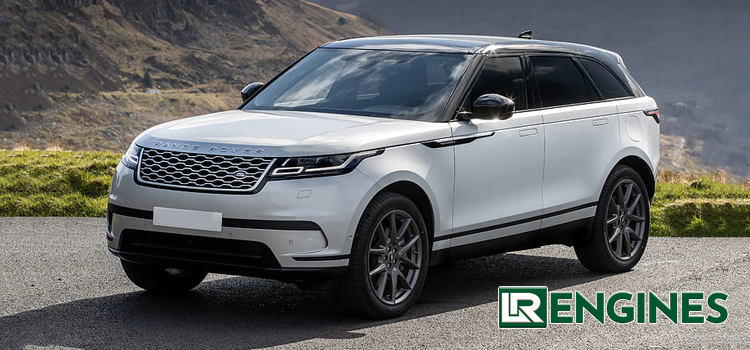The Benefits of the Land Rover Velar Engine’s Mild Hybrid Technology

In the ever-evolving landscape of automotive engineering, Land Rover has consistently pushed the boundaries of innovation. The introduction of mild hybrid technology in the Land Rover Velar Engine marks a significant leap forward in enhancing both performance and sustainability. We delves into the various benefits that this cutting-edge technology brings to the driving experience.
The Essence of Mild Hybrid Technology
Mild hybrid technology is a revolutionary approach to enhancing fuel efficiency and reducing emissions. In the Land Rover Velar, this system combines an internal combustion engine with an electric motor. Unlike full hybrids, mild hybrids cannot run on electric power alone but use the electric motor to assist the engine, resulting in a seamless and efficient driving experience.
Improved Fuel Efficiency
One of the primary advantages of the Land Rover Velar’s mild hybrid technology is the substantial improvement in fuel efficiency. The electric motor assists the conventional engine during acceleration, reducing the load on the engine and optimizing fuel consumption. This not only translates to fewer trips to the gas station but also aligns with the growing emphasis on environmentally conscious driving.
Enhanced Performance
Mild hybrid systems contribute to an overall boost in performance. The electric motor provides instant torque, especially during low-speed driving, resulting in quicker acceleration and a more responsive driving experience. The integration of these two power sources creates a synergy that ensures a dynamic and powerful performance on various terrains.
Regenerative Braking System
The Land Rover Velar’s mild hybrid technology incorporates a regenerative braking system. This innovative feature harnesses the energy generated during braking and converts it into electrical energy, which is then stored in the battery. This not only enhances overall efficiency but also ensures that energy, which would otherwise be lost as heat, is recycled for future use.
Reduced Environmental Impact
In an era where environmental consciousness is paramount, the mild hybrid technology in the Land Rover Velar significantly reduces the vehicle’s environmental footprint. By optimizing fuel efficiency and minimizing emissions, Land Rover takes a step towards sustainable and responsible driving without compromising the luxury and performance associated with the brand.
Seamless Integration with Start-Stop System
The mild hybrid system seamlessly integrates with the start-stop system in the Land Rover Velar. The electric motor aids in restarting the engine quickly and smoothly, eliminating the traditional hesitation associated with start-stop systems. This integration not only enhances convenience but also contributes to lower fuel consumption and emissions in urban driving conditions.
Intelligent Energy Management
Land Rover’s mild hybrid technology is equipped with intelligent energy management systems. These systems continuously monitor driving conditions, battery charge, and power demands to optimize the use of electric and conventional power sources. The result is a sophisticated and efficient power distribution that adapts to the driver’s demands and maximizes overall performance.
Future-Forward Design and Innovation
The inclusion of mild hybrid technology in the Land Rover Velar is a testament to the brand’s commitment to embracing the future of automotive engineering. By incorporating sustainable and forward-thinking solutions, Land Rover sets the stage for a new era in luxury SUVs, where performance and environmental responsibility coexist seamlessly.
Frequently Asked Questions (FAQs)
How does mild hybrid technology differ from full hybrid technology?
Mild hybrid technology, as seen in the Land Rover Velar, cannot operate solely on electric power but assists the internal combustion engine for improved efficiency. Full hybrid technology, on the other hand, allows the vehicle to run on electric power alone for short distances.
Does the mild hybrid system affect the driving experience?
Quite the opposite. The mild hybrid system in the Land Rover Velar enhances the driving experience by providing instant torque, smoother start-stop functionality, and overall improved performance.
How does regenerative braking work in the Land Rover Velar?
The regenerative braking system captures the kinetic energy generated during braking and converts it into electrical energy. This energy is then stored in the battery for later use, contributing to improved overall efficiency.
Is the mild hybrid system only beneficial for fuel efficiency?
No, the mild hybrid system in the Land Rover Velar offers a holistic approach to performance. It not only improves fuel efficiency but also contributes to enhanced acceleration, reduced emissions, and a more responsive driving experience.
Can the mild hybrid technology be turned off if desired?
The mild hybrid system in the Land Rover Velar operates seamlessly in the background and does not have an on/off switch. However, its integration is designed to complement the driving experience without any manual intervention.
How does the intelligent energy management system work?
The intelligent energy management system continuously monitors driving conditions, battery charge, and power demands. It then optimizes the distribution of power between the internal combustion engine and the electric motor, ensuring efficient and intelligent use of available energy.
Is the mild hybrid technology reliable in various driving conditions?
Yes, the mild hybrid technology in the Land Rover Velar is designed to perform reliably in a variety of driving conditions. Its adaptability and intelligent energy management make it suitable for both urban commuting and off-road adventures.
Does the mild hybrid technology require special maintenance?
The mild hybrid system in the Land Rover Velar is designed for minimal maintenance. Routine vehicle servicing, including battery checks, is typically sufficient to ensure the continued optimal performance of the mild hybrid components.


